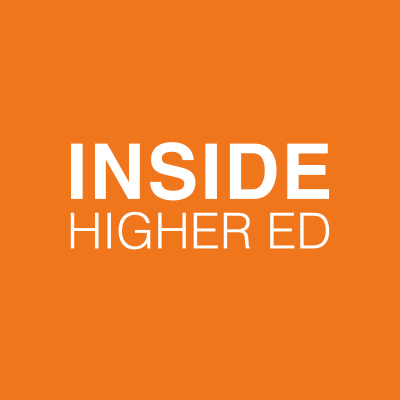
The Washington Post
January 03, 2024 Admissions
The new Free Application for Federal Student Aid (FAFSA) has been launched online with improved changes. It aims to simplify the application process, making it easier for a larger pool of students to access financial assistance with altered eligibility. A couple changes include reduced number of questions, more data directly uploaded, adjustments to eligibility criteria and the transition to the Student Aid Index, potentially expanding Pell Grant eligibility for millions of students, ending the ban for incarcerated students. The application deadline for the 2024-25 academic year is June 30, 2025.

Higher Ed. Dive
December 13, 2023 Admissions, Enrollment Management Trends
Concerns regarding selective college enrollment have grown in the wake of high-profile university scandals and the recent ruling by the U.S. Supreme Court regarding the use of race in admissions. A few institutions have begun to introduce direct admission programs, which automatically accepts students based on academic information such as GPA. Advocates for the policy say it can boost students’ confidence and help them understand they are college material. Though results are generally positive, it depends on the policy design.

Higher Ed. Dive
November 29, 2023 Admissions, Enrollment Management Trends
Highly selective universities are facing criticism concerning their early decision policies favoring affluent and wealthy students, and children of alumni and donors. Early decision demands a commitment to a university without revealing financial aid packages, hence perpetuating inequality through inconsideration of the financial affordability of students. Despite arguments to foster a more equitable and inclusive admission process, universities continue to maintain early decision policies to gain a competitive edge. There has been limited action to eliminate this policy, but some universities have said they will be reconsidering.

Higher Ed. Dive
November 14, 2023 Admissions, Enrollment Management Trends
There has been ongoing debate regarding university admissions considering legacy applicant status in admissions decisions. Many universities report conflicting information regarding their use, and definition, of legacy admissions consideration. Some policymakers, pundits and even college leaders have campaigned to end the practice since the U.S. Supreme Court struck down race-conscious admissions this summer, arguing it gives an unfair edge to wealthy and White applicants.

Higher Ed. Dive
October 30, 2023 Enrollment Management Trends
Preliminary enrollment data from the National Student Clearinghouse for fall 2023 largely brought good news to colleges and universities. Undergraduate enrollment rose 2.1% compared to the year before, and graduate enrollment rose 0.7%. Initial figures, however, indicated first-year enrollment fell 3.6% this fall, nearly reversing gains colleges saw last year. Additional enrollment trends are discussed in the article.

University Business
October 18, 2023 Admissions, Enrollment Management Trends
Despite a boost in applications across multiple graduate and postgraduate programs from fall 2021 to fall 2022, enrollment decreased. Overall first-time enrollment fell by 4.7%. Doctoral degree enrollment dipped by 4.4%, while Master’s degrees experienced an uptick, at 2.5%. While graduate certificates have experienced impressive growth between 2016-17 and 2021-22 at 10.5%, they, too, declined overall by 1.2%.

Inside Higher Ed.
October 26, 2023 Admissions, Enrollment Management Trends
According to the National Student Clearinghouse Research Center’s latest enrollment report, undergraduate enrollment climbed by 2.1 percent this fall, its first total increase since 2020. Enrollment increases for Black, Latino and Asian students—by 2.2 percent, 4.4 percent and 4 percent, respectively—were especially notable after last year’s declines. However, freshman enrollment declined by 3.6 percent, nearly undoing last year’s gain of 4.6 percent and leaving first-year enrollment less than a percentage point higher than it was in fall 2021, during the height of the pandemic. Those declines were most pronounced for white students and at four-year institutions with lower acceptance rates, reversing years of growth trends for the most selective colleges and universities.

The Chronicle of Higher Education
October 02, 2023 Student Success, Value and Affordability
A recently announced national initiative plan has more than 360 colleges agreeing to make their financial aid packages more transparent. This includes a mix of public, private and for-profit institutions. About a third of the institutions participating have 40% or more students who were awarded Pell grants. Over half of the colleges, on average, awarded less than $5,000 to first-time students.

Inside Higher Ed.
September 18, 2023 Admissions, Enrollment Management Trends
Significant national developments have impacted college admissions in 2023. The Supreme Court’s decision to ban race-conscious admissions will impact the admissions landscape moving forward. Enrollment challenges are ongoing, but colleges remain hopeful about their future enrollment strategies.

Higher Ed. Dive
September 15, 2023 Admissions, Value and Affordability
In a recent Gallup & Walton Family Foundation poll, 85% of Gen Z K-12 students valued college, yet only 62% plan to attend. Fifty-three percent of prospective college-goers expressed affordability concerns. Demographics play a role, with differences in perception based on gender, politics, and racial disparities in affordability and enrollment rates. This situation raises concerns for higher education’s future amid declining enrollment rates.